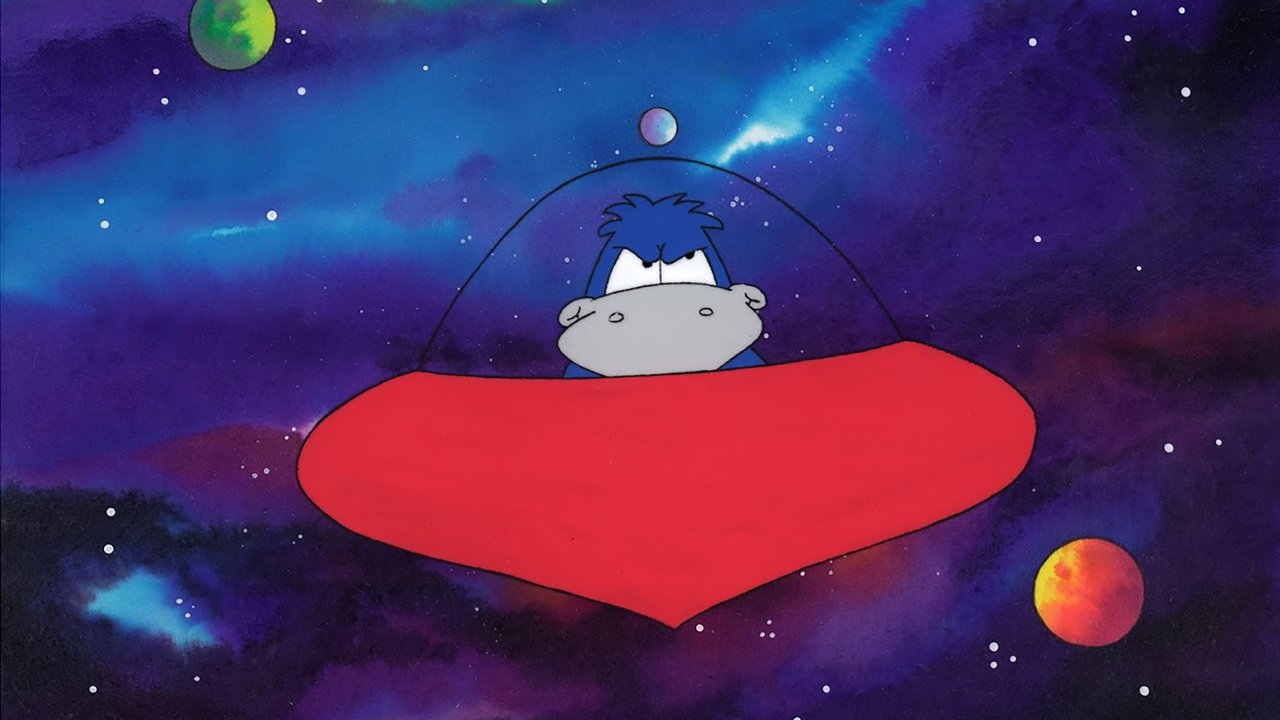

ITV1
Featured Show:
Ric the Raven
It's a British/German cartoon with 51 episodes of 5 minutes. It's about a blue raven called Ric, an optimist who tries things out for fun.
ITV1 TV Shows
2025 shows • Page 57 of 102
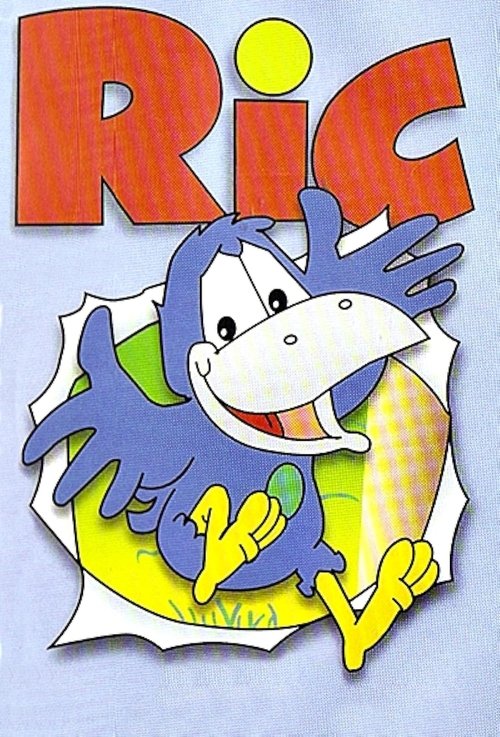 0
0Ric the Raven
It's a British/German cartoon with 51 episodes of 5 minutes. It's about a blue raven called Ric, an optimist who tries things out for fun.
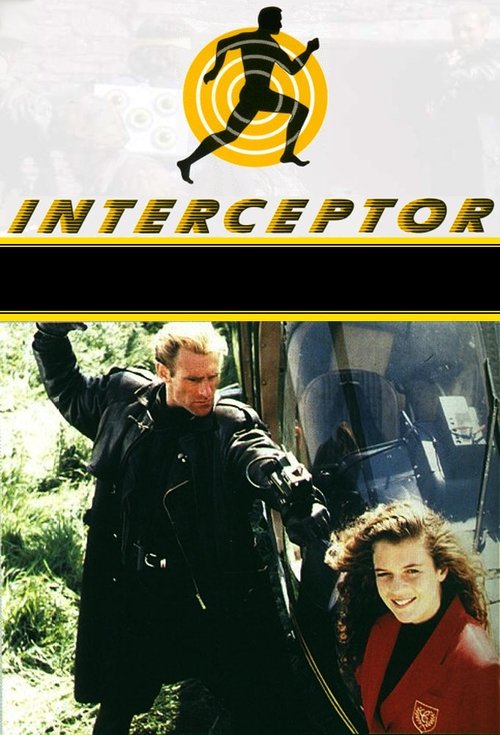 0
0Interceptor
Interceptor is a British game show created by Jacques Antoine, Jean Jacques Pasquier and Malcolm Heyworth. It was produced by Chatsworth in association with Thames and shown on the ITV network during the summer of 1989, with one last episode held back and shown on 1 January 1990 for a New Year special. It was made in between Treasure Hunt and The Crystal Maze, game shows from the same production company. The show was hosted by former tennis player and Treasure Hunt sky-runner Annabel Croft. The eponymous Interceptor was played by actor Sean O'Kane. Interceptor was received well by critics and viewers, yet only eight episodes were made. Nonetheless, the show has something of a cult following, which influenced re-runs on digital TV channel Challenge from 2001 onwards. A public vote by UKGameshows.com in 2002 saw the series voted the UK's 13th best game show.
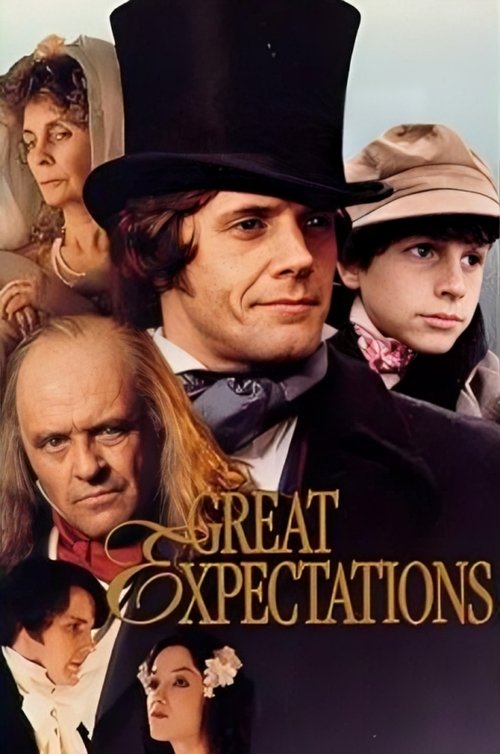
Great Expectations
Orphan Pip discovers through lawyer Mr Jaggers that a mysterious benefactor wishes to ensure that he becomes a gentleman. Reunited with his childhood patron, Miss Havisham, and his first love, the beautiful but emotionally cold Estella, he discovers that the elderly spinster has gone mad from having been left at the altar as a young woman, and has made her charge into a warped, unfeeling heartbreaker.
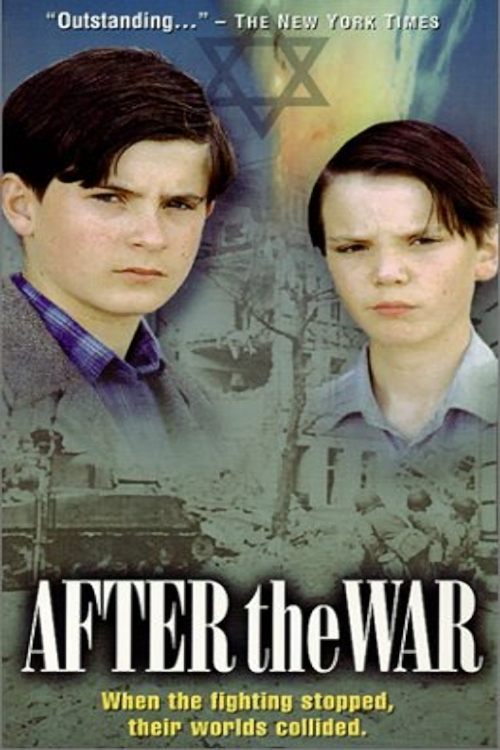
After the War
John Madden's sweeping drama After the War tells the tale of a quarter-century relationship between two men who share a similar wartime experience and a similar religious background. Michael Jordan grew up in a well-heeled British family, while Joe Hirsch spent much of his childhood on the run from the Nazis. The two become friends when they are both enrolled at the same school in 1942. They survive anti-Semitic taunts together. Joe grows into a powerful media figure, while Michael becomes a respected man of the arts. The film charts a quarter-century of their history together, detailing a relationship that is equally affectionate and hostile.

Rules of Engagement
Political intrigue and murder occurs when the English town of Portsmouth is sealed off by the military during the eve of World War III.
 0
0Tales of Sherwood Forest
Eric, the owner of a night-club in Nottingham, is obsessed by the film Casablanca (1942) and dreams of being Rick Blaine.

The Nineteenth Hole
A harassed secretary at a private golf club steeped in bigotry faces challenges amidst its desperate financial straits. Key events unfold in the club's bar, The Nineteenth Hole. The series was widely condemned as racist, sexist and homophobic. TV producer Paul Stewart Laing, then-controller of programmes for the Plymouth based TSW (Television South West) ITV region, stopped after only three episodes.

Huxley Pig
Huxley Pig is a stop-motion animated children's television series from 1989 and 1990. Based on the picture books by Rodney Peppé, the series was produced by FilmFair for Central TV. It was narrated by Martin Jarvis.
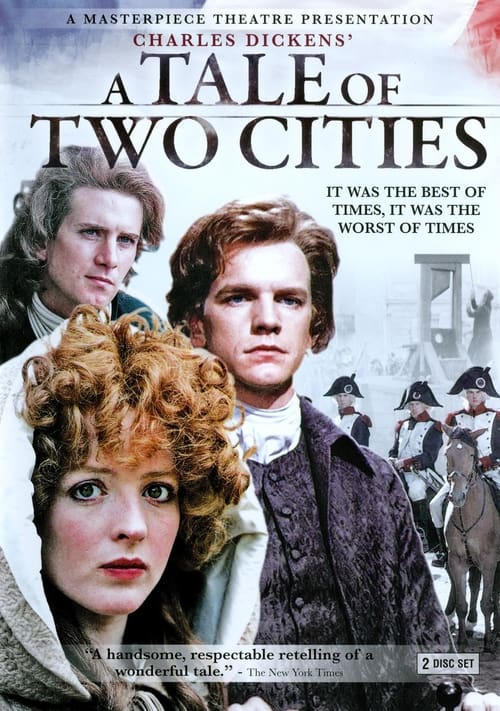
A Tale of Two Cities
A pair of lookalikes, one a former French aristocrat and the other an alcoholic English lawyer, fall in love with the same woman amongst the turmoil of the French Revolution.
 0
0Brian Conley: This Way Up
Brian Conley: This Way Up was a sketch comedy show starring Brian Conley. It ran from 20 May 1989 to 1 June 1990 on ITV in the United Kingdom. Whilst the show wasn't as popular as its successor, The Brian Conley Show, This Way Up gave one of Conley's most popular characters, Nick Frisbee and Larry the Loafer, their debut. This Way Up ran for two series. The final show ended with Brian saying "See you next year!". Although a third series was never produced in 1991, The Brian Conley Show started the following year. The show led Conley to be named the freshest face on ITV, and he was awarded the "Most Promising Artiste" title at the 1991 Variety Club Awards. During the late 1990s, the show was repeated regularly on satellite channel Granada Plus.
 0
0Capstick's Law
Capstick's Law is a British television drama series that originally aired in 1989. Produced by Granada Television for the ITV network, it centered around a firm of solicitors in the 1950s.
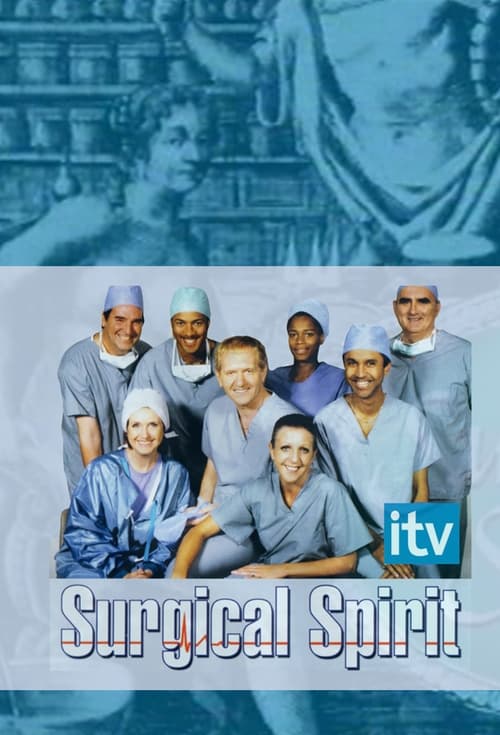
Surgical Spirit
Surgical spirit is a British situation-comedy television series starring Nichola McAuliffe and Duncan Preston that was broadcast from 14 April 1989 through to 7 July 1995. It was written by Annie Bruce, Raymond Dixon, Graeme Garden, Peter Learmouth, Paul McKenzie and Annie Wood. It was made for the ITV network by Humphrey Barclay Productions for Granada Television.

No Strings
No Strings is a British sitcom produced by Yorkshire Television for ITV, broadcast from 12 April to 31 May 1989. It stars Edward Petherbridge and Joan Marsh. Sam comes home to find that his wife has run off with another man. He contacts Rosie, the other man's wife, and finds that they have a lot in common. Gradually, a relationship develops between them.
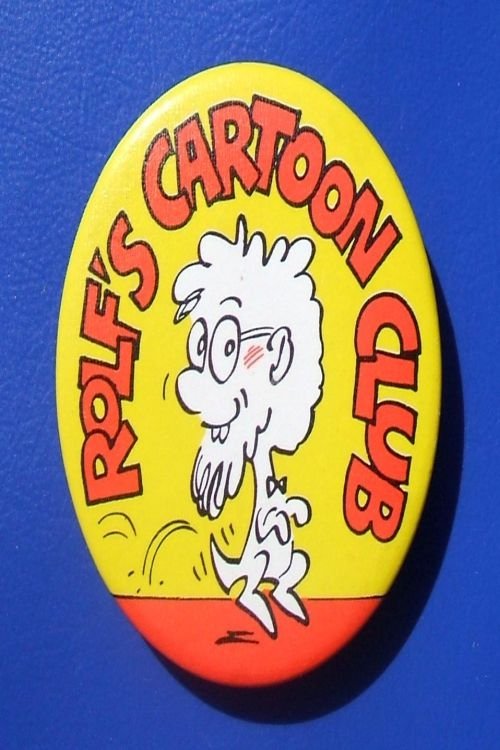
Rolf's Cartoon Club
Rolf's Cartoon Club was a television show presented by Rolf Harris on CITV between 1989 and 1993.
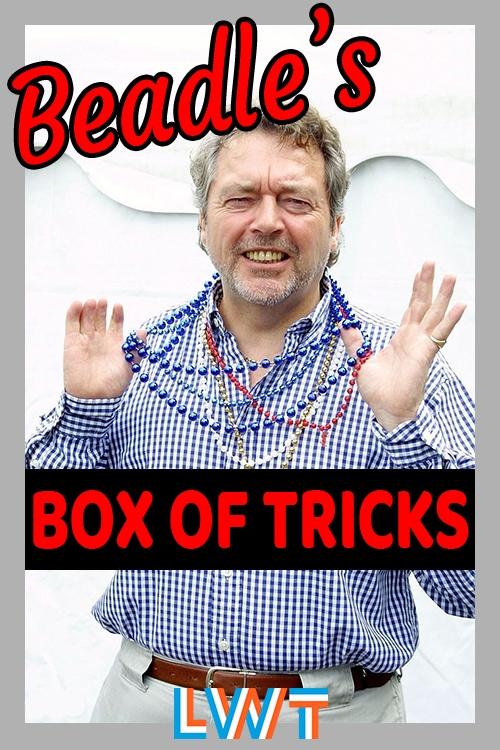 0
0Beadle's Box Of Tricks
Magic and stunts for all the family, hosted by Jeremy Beadle.
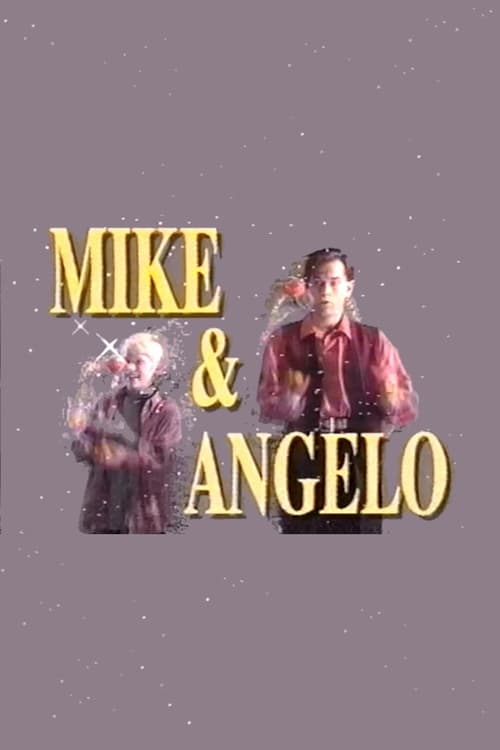
Mike and Angelo
Mike and Angelo is a British sci-fi TV sitcom series, that ran on CITV between 16 March 1989 and 7 March 2000. It centres on Angelo, an alien who came from another world during the first series; the portal from his world being that of a wardrobe in one of the bedrooms. He lives with Mike King, and Mike's mother Rita. Later series had Mike and Rita move away, with Rita's nephew Mike Mason staying on in the house with housekeeper Katy. Together, Mike and Angelo get up to all kinds of crazy adventures - all within the vicinity of the house that they live in. Angelo is always inventing something crazy, or walking on the ceiling, or summoning up historical figures from the past. They always wreak havoc together, much to Katy's annoyance, crying "ANGELO!!" in her Scottish accent constantly or Rita in her Canadian accent before her. Their neighbours are the posh Fawkes-Bentleys, in whose house some of the show's scenes are occasionally based. The 1999 series began with Angelo and Katy reading a postcard explaining that Mike was having a good time in America. In his place, Daphne Fawkes-Bentley's niece Michaela became Angelo's sidekick. For the final series, Katy's nephew, also called Mike, joined. The final series was shown in 2000.
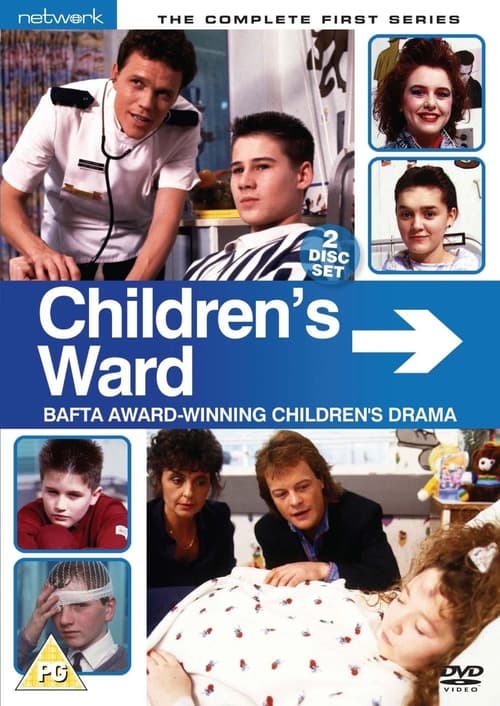
Children's Ward
Children's Ward is a British children's television drama series produced by Granada Television and broadcast on the ITV network as part of its Children's ITV strand on weekday afternoons. The programme was set – as the title suggests – in Ward B1, the children's ward of the fictitious South Park Hospital, and told the stories of the young patients and the staff present there. Aimed at older children and teenagers, Children's Ward was a long-lived series for a children's drama, starting life in 1988 as a contribution to the Dramarama anthology strand, "Blackbird Singing In The Dead of Night", then first broadcast as a series 1989 and running from then until 2000. The series was conceived by Granada staff writers Paul Abbott and Kay Mellor, both of whom went on to enjoy successful careers as award-winning writers of adult television drama. At the time, they were both working on the soap opera Coronation Street, and had recently collaborated on a script for Dramarama. Abbott, who had been through a troubled childhood himself, had initially wanted to set the series in a children's care home rather than a hospital, but this was vetoed by Granada executives. During the course of its run, however, Children's Ward won many plaudits for covering difficult issues such as cancer, alcoholism, drug addiction and child abuse in a sensitive manner. The programme won many awards, including in 1996 a BAFTA Children's Award for Best Drama, won by an episode in which a serial killer lures children to him via the internet and is – highly unusually for children's television – not eventually caught.
 0
0The Labours of Erica
The Labours of Erica was a 1989/90 British sitcom starring Brenda Blethyn as self-made businesswoman Erica Parsons. The premise of the show was that Erica found a list she had made as a young girl of everything she wanted to do before turning 18. Realising she hasn't done any of them, she resolves to achieve all her aims before her 40th birthday instead. The series premiered on ITV in the United Kingdom at 8:00pm on Monday 13 March 1989 and ran for two series until the 9 April 1990.

Forever Green
Forever Green is a television programme originally broadcast on ITV in the United Kingdom from 1989 to 1992. It was made for London Weekend Television by Picture Partnership Productions, now named Carnival Films.
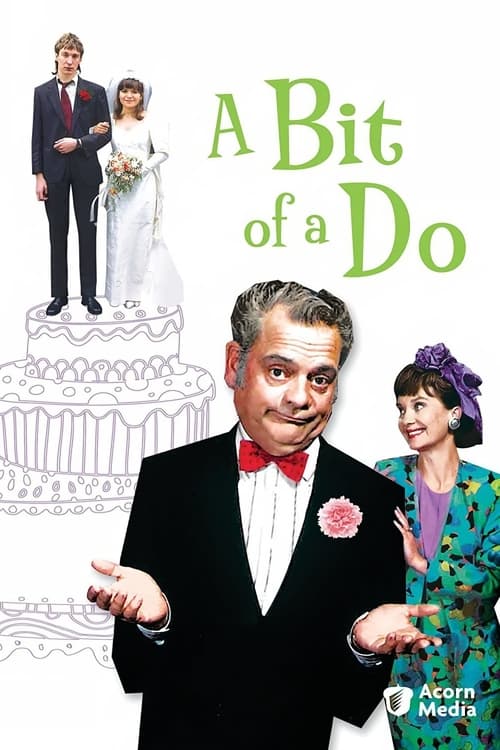
A Bit of a Do
A Bit of a Do is a British comedy drama series based on the books by David Nobbs. The show starred David Jason and was aired on ITV in 1989. It was made for the ITV network by Yorkshire Television. The show was set in a fictional Yorkshire town. Each episode took place at a different social function and followed the changing lives of two families, the working-class Simcocks and the middle-class Rodenhursts, together with their respective friends, Rodney and Betty Sillitoe, and Neville Badger. The series begins with the wedding of Ted and Rita Simcock's son Paul to Laurence and Liz Rodenhurst's daughter Jenny; an event at which Ted and Liz begin an affair. The subsequent fallout from this affair forms the basis for most of the first series.